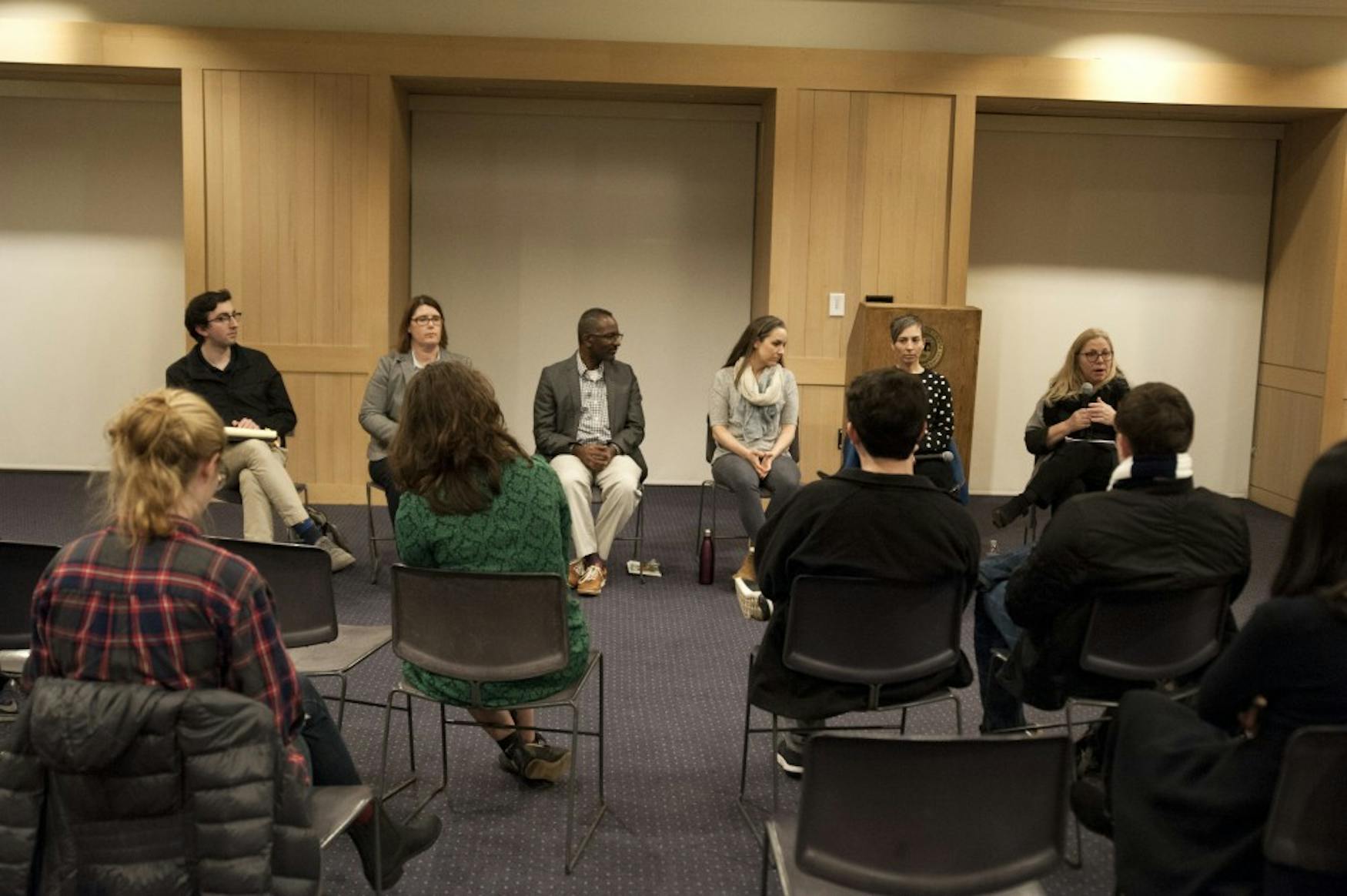The State of Our Mental Health.
At a forum on mental health, students voice their concerns
Being a college student is stressful, which is why it is important for Brandeis to have quality mental health services, a forum of students agreed last Thursday. The Brandeis Counseling Center, in conjunction with the Student Union, held an open forum in the Napoli Room, the goal of which was to facilitate understanding and discussion between Brandeis students and the BCC. Students, or anyone in attendance at the forum, could ask questions regarding issues related to the BCC, and the panelists would respond, educating the audience members on a variety of topics. The topics included the services provided by the BCC, the BCC staff, present and future endeavours and what the BCC hopes to achieve. In addition, audience members could make comments and suggestions for the panelists to consider and discuss. The forum was recorded and posted online for anyone wishing to watch it.
The panelists included Student Union President Jacob Edelman ’18, Vice President for Student Affairs Sheryl Sousa, Director of the BCC and clinical psychologist Joy von Steiger, Assistant Director of the BCC, Clinical Social Worker and Eating Disorder Specialist Amy Scobie-Carroll, eating disorder specialist Rachael Pucillo and counseling psychologist Dennis Tyrell.
In the last five years, the BCC has experienced a 30 percent increase in individual appointments. Last semester was particularly hectic; in addition to an increasing demand, many staff members had left the Center due to an implemented change in its model for treatment. This has put a lot of strain on the BCC — and it showed, according to some audience members. Multiple audience members provided testimonies of their friends complaining about the BCC, and many expressed feelings of frustration and concern that the center wasn’t meeting their individual needs as well as before. The main criticisms included the long wait time for an initial appointment and a lack of communication from the BCC. While most in attendance were grateful for the BCC and appreciative of the services it provides, there was a consensus that several pressing concerns needed to be addressed. As a result, most of the discussion was devoted to how the BCC can be improved.
However, the BCC isn’t completely at fault, the panelists explained. Panelists noted that the BCC doesn’t directly communicate with students. Additionally, much of the staff at the BCC consists of trainees, who leave after a certain period of time; not much can be done if a staff member wants to leave because they feel that the workplace is no longer right for them. The members of the BCC have also been putting in hard work and have received increased funding in order to ensure that the situation from last semester is not repeated.
Panelists and attendees worked together to brainstorm ways that the BCC could communicate more effectively with the student body. The panelists admitted that much improvement was needed in this area. The most popular ideas included a regular email, similar to the weekly emails sent out by the Department of Student Activities, and updating the BCC’s Facebook page more frequently. Both parties agreed that through these changes, more students would become aware of the BCC and the stigma around getting help for mental health issues would be reduced. In addition, students would notice the effort being put into this communication, which would improve the BCC’s reputation and affirm the University’s commitment to mental health. Other ideas included educating Community Advisors on the BCC and its services and hanging flyers in bathroom stalls.
One way in which the BCC is improving its services is by instituting embedded therapists in various locations around campus, including the sports and convocation center, Gosman, the Intercultural Center, North Residence Quad, Village Quad, the Heller School and the International Business School. These therapists have drop-in hours in which students can simply show up and have someone to talk to They hope to eventually expand this program to other locations. This addition was very well-received by the attendees. \
Another criticism of the BCC was that the formal process of gaining access to its services was intimidating; the embedded therapist program seeks to address this concern by providing an opportunity for students to seek help in a more relaxed setting. However, no one knew about this program before attending the forum. The panelists acknowledged that this was probably due to their subpar communication, although they did note that they were already planning on making flyers to advertise in dorm halls.
Other topics of discussion included group therapy, the BCC’s relations with student-run groups on campus relating to mental health needs and inclusivity. Overall, both the panelists and attendees appeared satisfied with the dialogue created between the two parties. Hopefully, both parties concluded with a mutual understanding, and the BCC can look toward a brighter future.



Please note All comments are eligible for publication in The Justice.